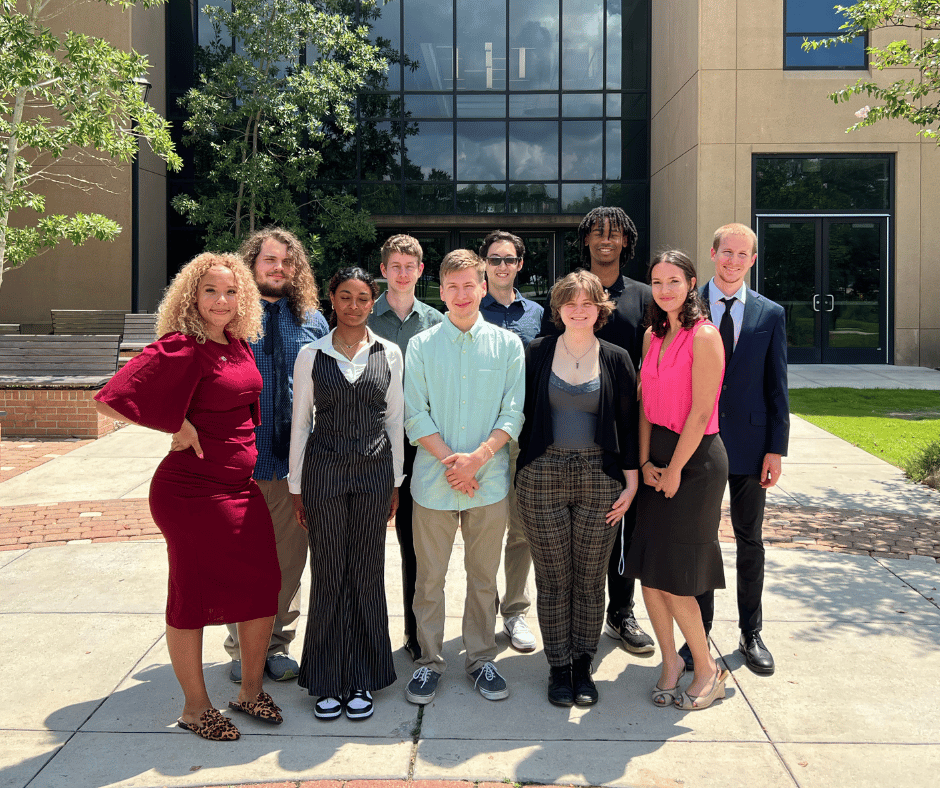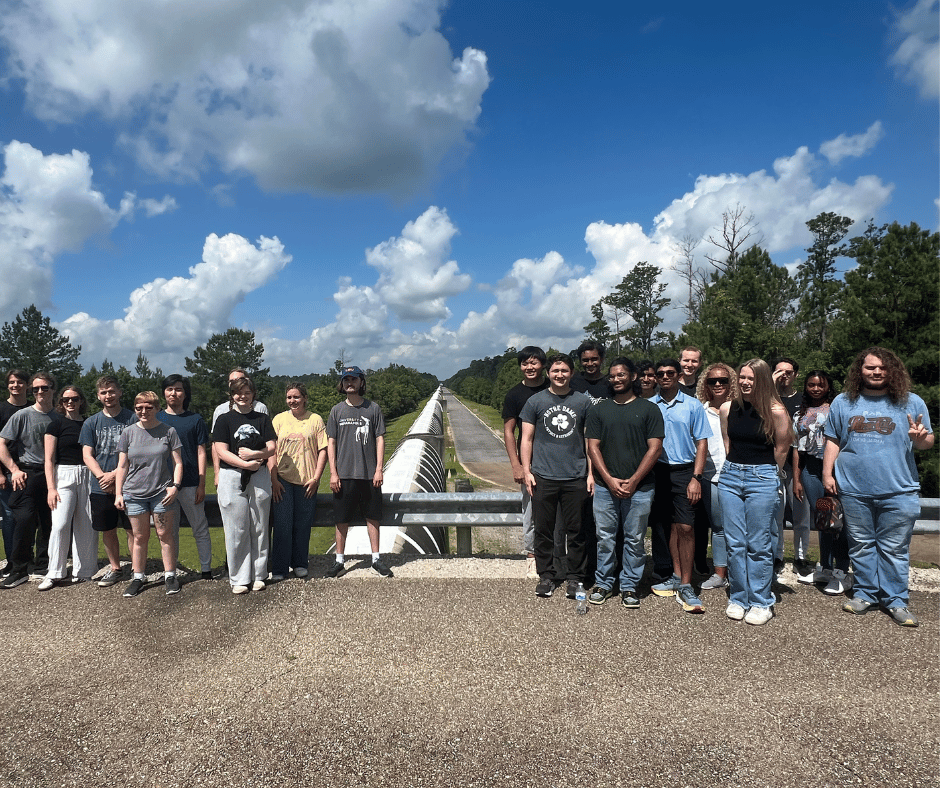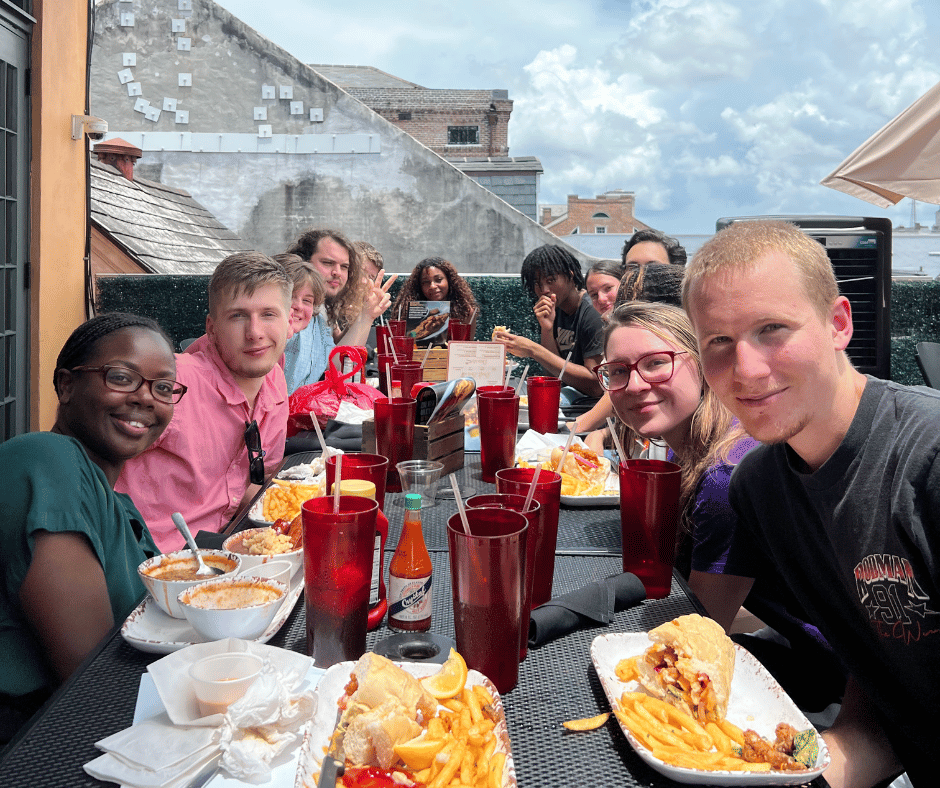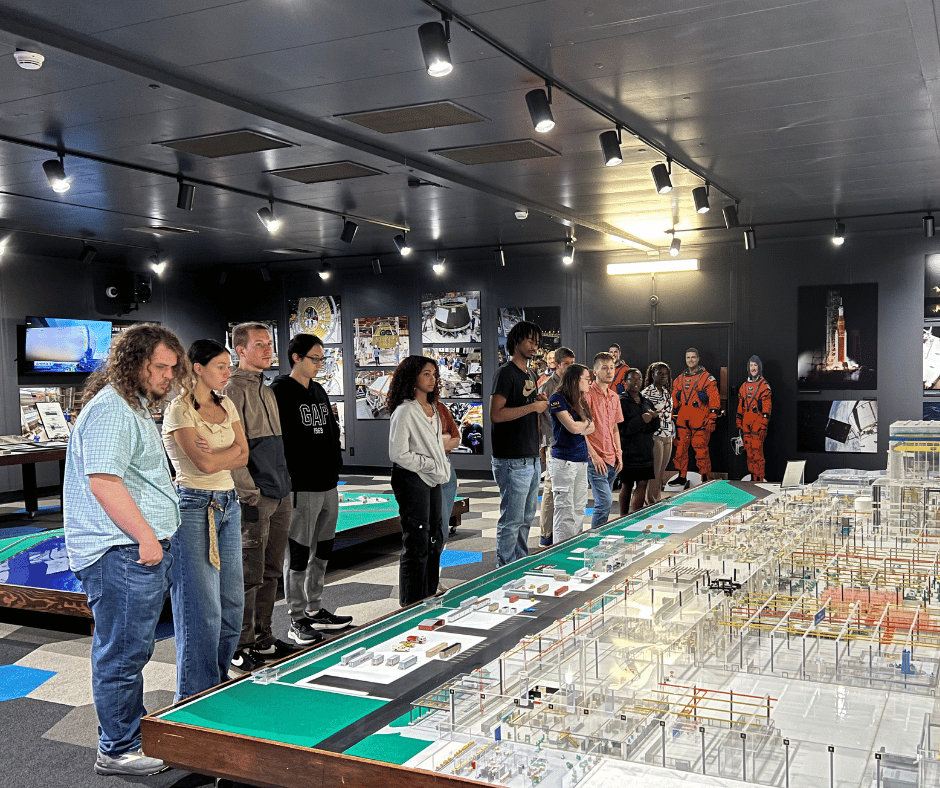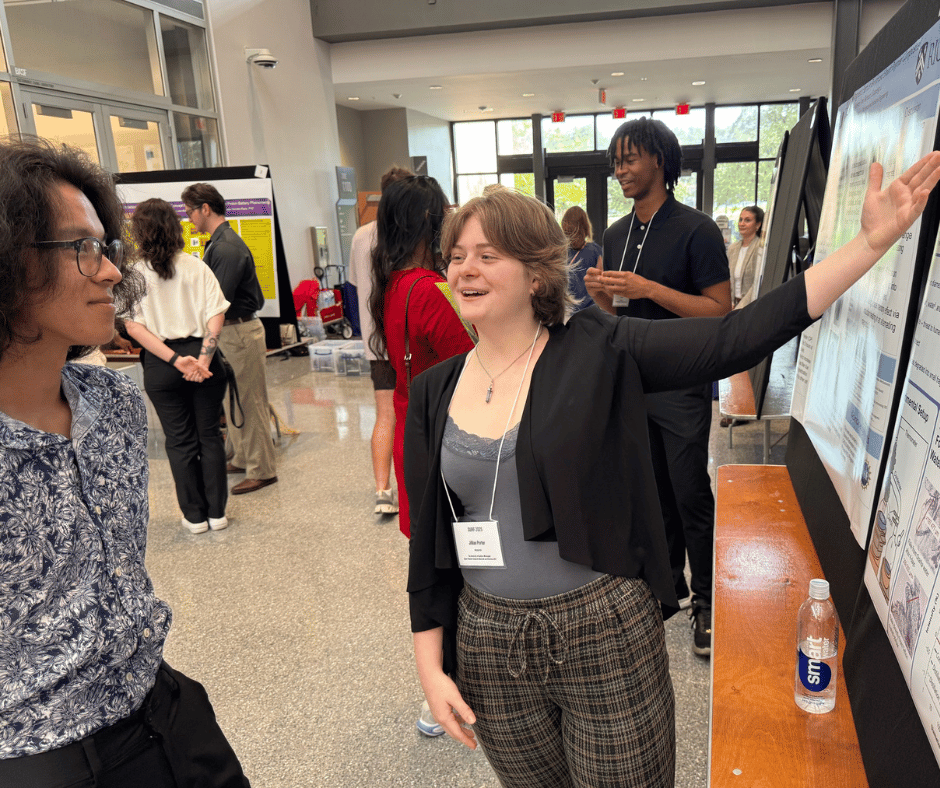LSU Chemistry Hosts 2025 Smart REU Students for a Summer of Breakthroughs and Growth
August 14, 2025
Each summer, LSU Chemistry welcomes a group of undergraduates to participate in the Smart Polymer Composite Materials and Structures Research Experience for Undergraduates (REU), funded by the National Science Foundation (NSF). The ten-week program brought together a talented cohort of students from across the country to explore polymer and materials chemistry in LSU labs.
Established in 2017, the LSU SMART REU has been running for nine consecutive summers, with approximately 90 students participating in the program. This summer, 10 students participated, with five conducting research in LSU Chemistry laboratories and five in the College of Engineering. The program is led by key personnel, Professor Guoqiang Li (PI), LSU Department of Mechanical Engineering, and Professor John Pojman (Co-PI), LSU Department of Chemistry, whose mentorship and leadership have been instrumental to its continued success.
This year’s chemistry cohort each has a compelling story of how they arrived at LSU and where they hope their research experience will take them next. Below are their stories, snapshots of curiosity, growth, and the paths they’re shaping through science.

Hunter Brown, Chemistry Senior, Berea College, Kentucky
Hunter Brown
A Mind for Molecules and a Passion for Innovation
For Hunter Brown, research started with a question about Δ8-THC and spiraled into a fascination with synthetic chemistry. That same investigative spirit led him to Professor John Pojman’s lab, where he developed a new class of initiators for gas-free frontal polymerization that could revolutionize sustainable polymer production.
His project centered on creating initiators derived from legal psychoactive compounds, whose nonpolar solubility and thermal stability offered surprising benefits.
The result? A compound Hunter named “Tesh,” which, to his surprise, succeeded on the first attempt.
“It was such a far-fetched idea, but it worked on the first try. I had some improvements to make on the synthetic procedure… but the fact that the reaction succeeded at all surprised me greatly.”
He credits his success to the creativity and support of his mentors, Prof. Pojman and graduate student Dominic: “Dominic has a talent for explaining complex concepts clearly and simply... Dr. Pojman emboldens creativity in others.”
His advice for undergraduates unsure about research is “as long as you’re good at asking questions and trying again after failing, you’ll make a great scientist.”
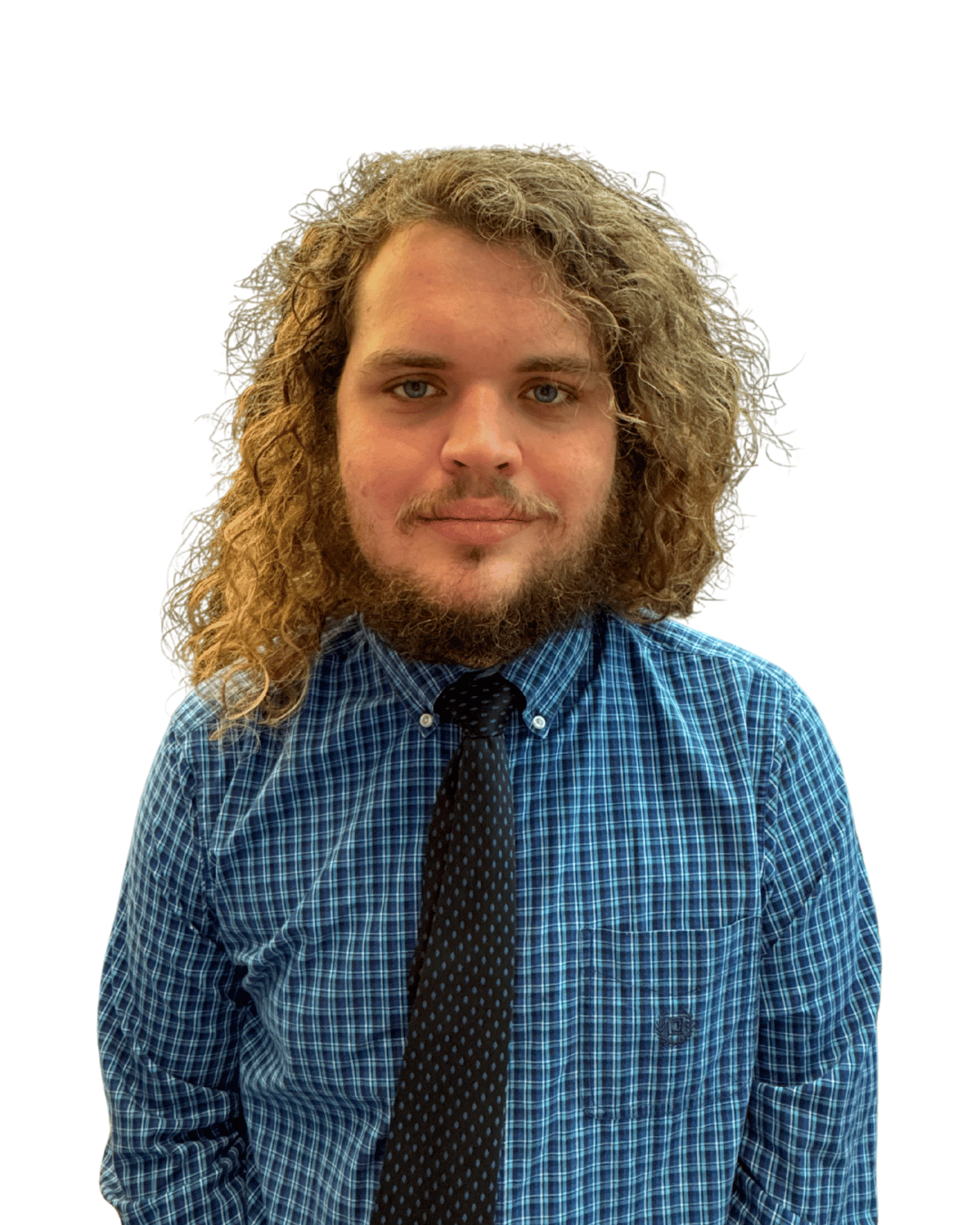
Isaac Bare, Chemistry Senior, Georgia State University
Isaac Bare
Expanding Horizons in Polymer Depolymerization
For Isaac Bare, switching from computational protein research to experimental polymer chemistry was a deliberate move to expand his scientific toolkit.
“I wanted the chance to expand my research horizons before getting into a specific project for graduate school,” he said.
At LSU, Isaac contributed to a project in Professor David Spivak's lab that explores how endcap molecules can lower the heat required to depolymerize polymers, potentially paving the way for more sustainable materials. These specialized endcaps help generate a radical that initiates the unzipping process.
With strong mentorship Prof. Spivak and graduate advisor Hannah Heinz, Isaac didn’t just learn lab techniques, he understood the science behind them.
“Due to their effort, I am to understand the science behind everything I do in the lab and not just the procedures given.”
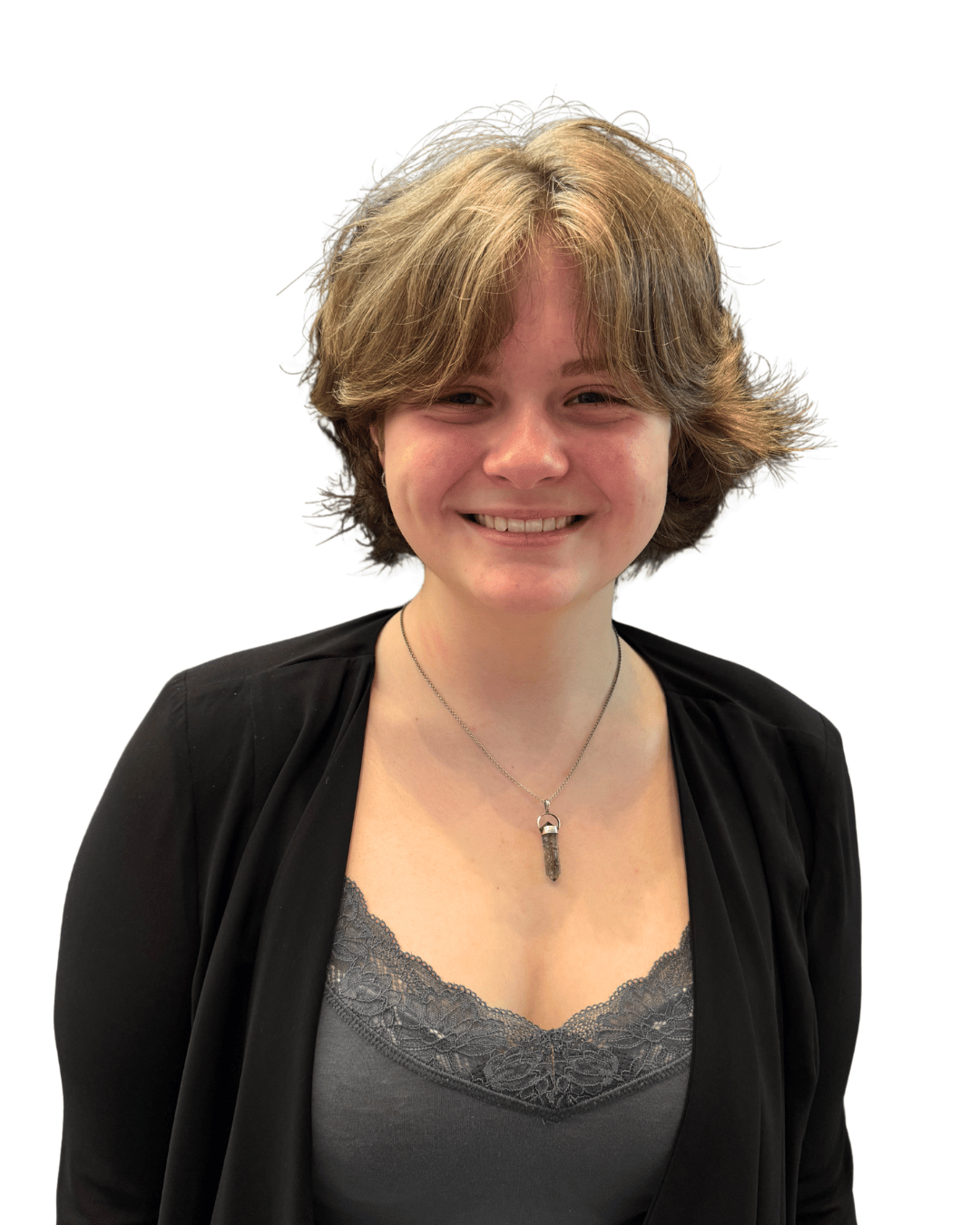
Jillian Porter, Polymer Science and Engineering Sophomore, University of Southern Mississippi
Jillian Porter
Confidence Through Mentorship
Jillian Porter’s interest in polymers began in high school, thanks to a passionate teacher who encouraged her to question everything. That early spark carried her into a research position in the Schneider Research Group at LSU, where she investigated nanoplastic particles in drinking water using Dynamic Light Scattering (DLS).
Navigating the lab environment independently was one of her biggest challenges, but it became a valuable learning experience. “I have been able to have independence in my project and decide what needs to be done next myself.”
She credits her mentors, Professor Gerald Schneider and graduate student Stefanie Klisch, for guiding her journey. “Steffi has been with me and my project every step of the way.”
“This program has introduced me to some excellent people interested in STEM that I am glad to call friends.”
Her message to other students: “Just do it. Everything seems scary at first… but that is what will help you in the long run.”
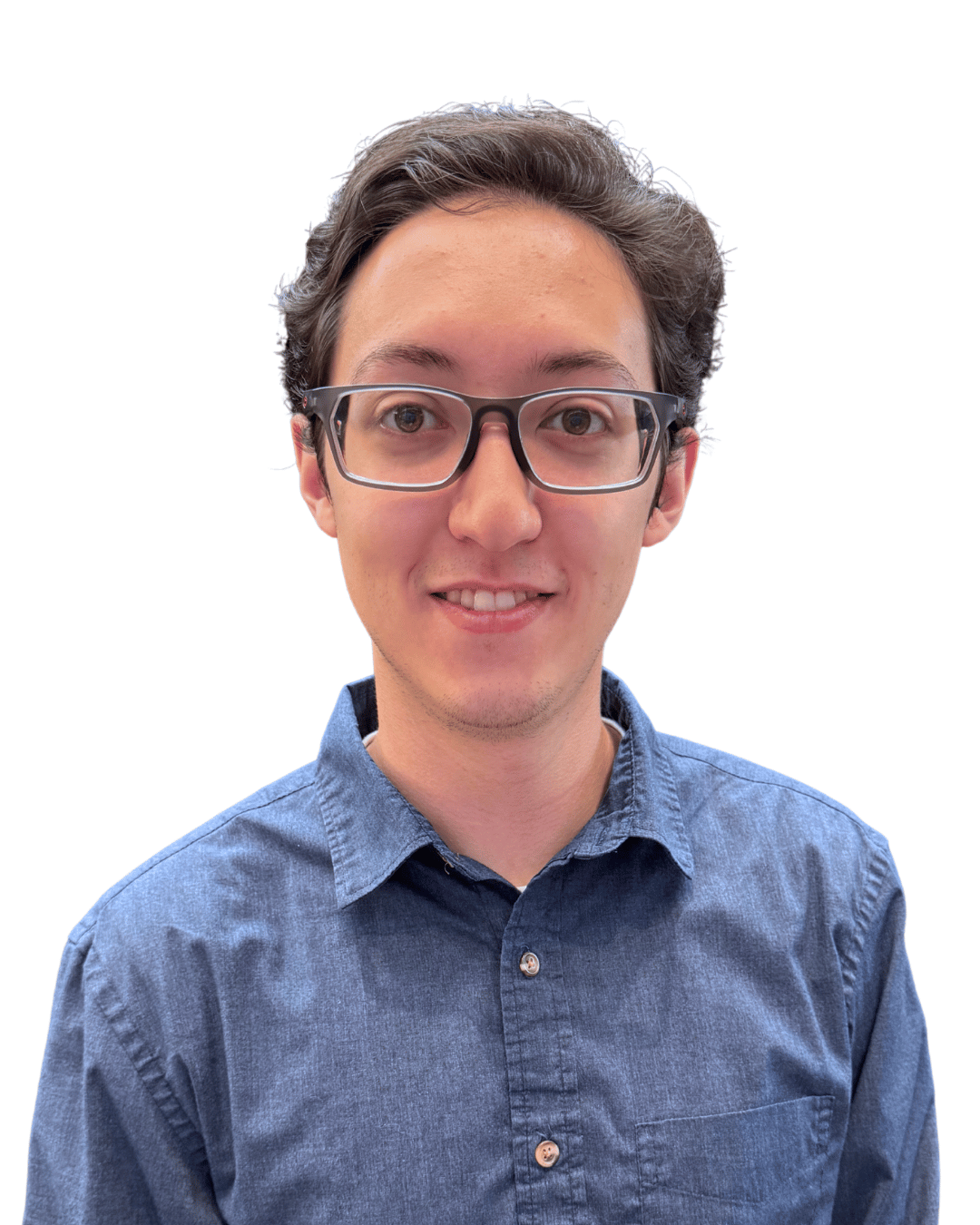
Lucas Aburaya, Biochemistry Senior, University of Florida
Lucas Aburaya
Finding Focus Through Learning Moments
When Lucas arrived at LSU, he was already set on pursuing a PhD, but he wanted to dive deeper into a new area of polymer science. What he discovered in Professor Amy Xu's lab went far beyond the bench; it became a lesson in resilience and self-discovery.
“The most challenging part… has been dealing with failed experiments,” he admitted. “We always expect things to work, but they rarely do on the first try.” It didn’t take long for Lucas to realize that in research, perseverance often matters just as much as precision.
“At the end of the day, every experiment provides you with information and experience, and keeping a positive mindset is crucial.”
He stressed the importance of leaning on your lab community: “Your lab will provide you with the support and help you’ll need to succeed, and relying on them is essential.”

Ryan Coudurier, Biochemistry Junior, Florida State University
Ryan Coudurier
Exploring Polymers for Medicine and Meaning
For Ryan Coudurier, research is personal, driven by his concern for the planet’s future. “My interest in environmental preservation led me to search for a career that allows humans to continue living comfortably while reducing their environmental impact.”
At LSU, he worked in the Zhang Research Group studying polysarcosine, a polymer with promise for drug delivery. His focus was on understanding why the initiator’s architecture influenced the polymerization reaction rate to produce multi-armed polysarcosine polymers.
While mastering lab equipment was straightforward, Ryan quickly realized that the true challenge, and the real learning, came with interpreting data.
“Anyone can learn how to properly use the equipment... but real skill is shown when someone can look at graphs and know what they mean.”
He was inspired by his graduate mentor Anuja Thapa’s patience and expertise and gained confidence in failure. “Failed experiments have forced me to create a plan after failure instead of worrying.”
By summer’s end, his plans for the future were clearer: “Now, I am almost certain that I will attend graduate school.”
Image Gallery
